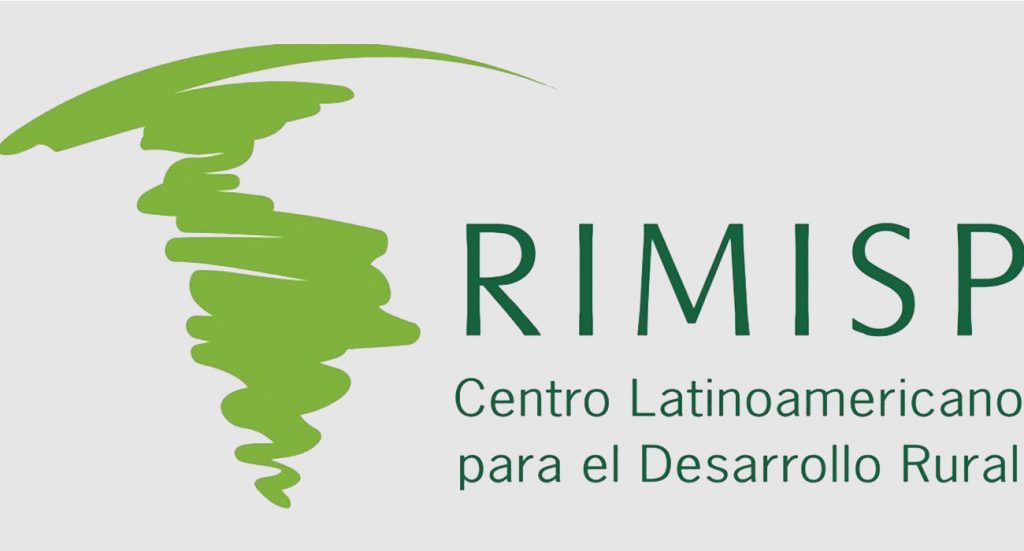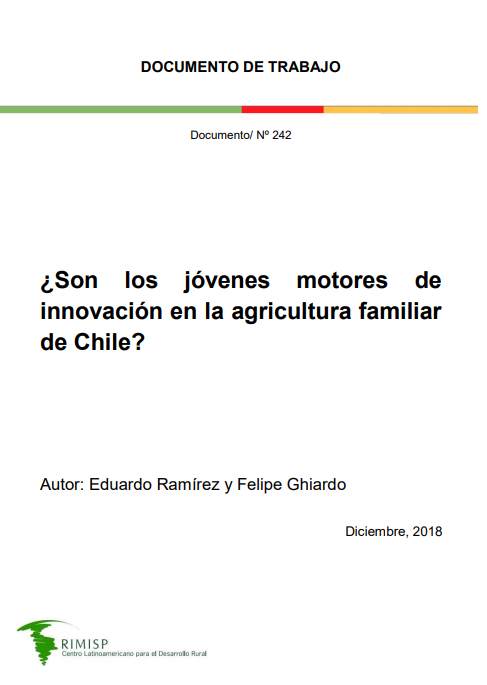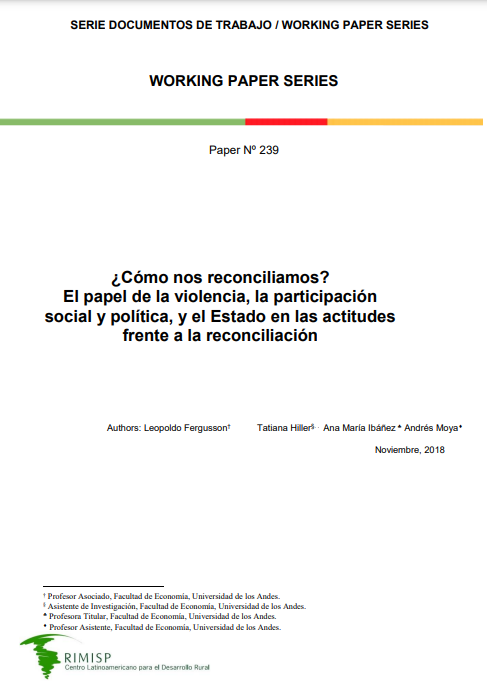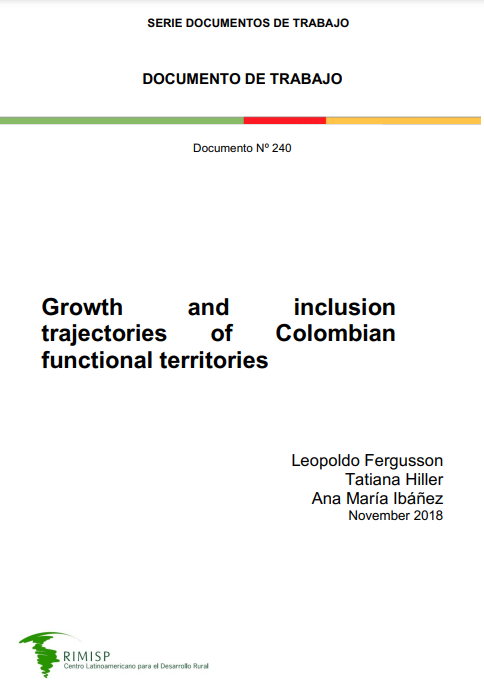Modelo de intervención de extensionismo, desarrollo de capacidades y asociatividad para pequeños productores

El presente documento se enmarca en el Proyecto “Estrategia de Extensionismo – Red de Instituciones Nacionales e Internacionales para Prever el Sustento Científico y Tecnológico para el Desarrollo de Capacidades y Extensionismo Rural” …
How Large are the Contributions of Cities to the Development of Rural Communities?

Este artículo estima el impacto de las ciudades en el desarrollo económico de las comunidades rurales en Chile siguiendo un enfoque de acceso a mercados.
Comportamiento del gasto público para la inclusión económica de la juventud rural en Ecuador, Colombia, Perú y México

El objetivo del presente documento es analizar el comportamiento del gasto público del Gobierno Central dirigido a la juventud rural, con especial énfasis en los esfuerzos de inclusión económica (financiera, productiva y laboral), en Colombia, Ecuador, México y Perú.
¿Son los jóvenes motores de innovación en la agricultura familiar de Chile?

La agricultura familiar ha vuelto a ser un objetivo prioritario para la agenda del desarrollo. El desafío
es que la AF sea un sector capaz de competir en mercados cada vez más abiertos y exigentes. Una
de las alternativas para avanzar hacia ese objetivo pasa por la innovación. En este artículo se aborda
el problema de la relación entre innovación y juventud en la agricultura familiar.
Programa de apoyos productivos directos para la autosuficiencia alimentaria. Producción para el bienestar. Diagnóstico 2018

El Programa presupuestal de Apoyos Productivos Directos para la Autosuficiencia Alimentaria Producción para el Bienestar es un programa de nueva creación de la Secretaría de Agricultura y Desarrollo Rural (Ramo 8) para el ejercicio 2019-2024. Con clave presupuestal a definir.
Lineamientos a nivel político, estratégico y operativo para avanzar en la incorporación de la perspectiva de género en las estrategias de extensionismo de la SAGARPA

Este documento es el resultado del Programa “Estrategia de extensionismo – Red de instituciones nacionales e internacionales para proveer el sustento científico y tecnológico para el desarrollo de capacidades y extensionismo rural”…
Cómo nos reconciliamos? El papel de la violencia, la participación social y política, y el Estado en las actitudes frente a la reconciliación

La firma del acuerdo de paz colombiano resultó en la desmovilización y reincorporación a la vida civil de más de 12.000 excombatientes de las FARC. El conflicto, que estuvo activo
casi 60 años, causó más de ocho millones de víctimas y una sociedad dividida. No abordar estos legados sociales y psicológicos puede derivar en el resurgimiento de nuevos ciclos de
violencia.
Growth and inclusion trajectories of Colombian functional territories

We describe the patterns of economic growth and social progress in Colombian “functional
territories”. Unlike political/administrative divisions that emerge at least partly for historical reasons
unrelated to economic interactions, functional territories reflect the patterns of spatial agglomeration
and economic interactions in a territory.
Estrategia de Extensionismo – Red de Instituciones Nacionales e Internacionales para Proveer el Sustento Científico y Tecnológico para el Desarrollo de Capacidades y Extensionismo Rural. Programa de Trabajo

Este documento es el resultado del Programa “Estrategia de extensionismo – Red de instituciones nacionales e internacionales para proveer el sustento científico y tecnológico para el desarrollo de capacidades y extensionismo rural”, coordinado por Rimisp – Centro Latinoamericano para el Desarrollo Rural, …
El Impacto de las Asesorías Técnicas en el Sector Agrícola: el caso de la Agricultura Familiar en Chile

En Chile la Asesoría Técnica siempre ha sido un factor relevante en el diseño de programas de apoyo a la agricultura familiar.